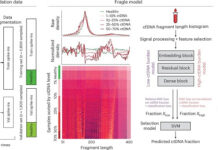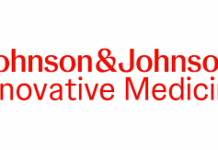The tragic death of renowned singer Krishnakumar Kunnath, known to his beloved fans as KK, on May 31st due to myocardial infarction while performing live at Kolkata’s Nazrul Mancha has sent shockwaves down throughout the country, raising concerns about the rising number of deaths due to heart diseases, particularly among the young.

According to sources, 53-year-old KK had no underlying health conditions or history of cardiovascular diseases. He reportedly led a fit lifestyle, maintained a healthy diet and never indulged in smoking or alcohol consumption.
KK had complained of feeling uneasy several times that evening, and according to sources, he even went backstage to rest. Doctors believe that those were subtle warning signs of impending peril that should not have been disregarded. If KK had cancelled his concert and sought medical attention right away, the unfortunate incident could have been prevented.
Warning signs ignored
In the final post-mortem and chemical analysis of the singer, the cause of death was cited as “myocardial infarction (MI).” “Cholesterol accumulation narrowed the posterior intramuscular artery to a great extent which affected the pumping of blood by the heart.” There were blockages in the coronary artery as well, the report stated.
According to Prof. (Dr.) Anoop Misra, Executive Chairman, Fortis C-DOC Hospital for Diabetes and Allied Sciences, performing in a closed space where thousands of fans are cheering, releases a surge of adrenaline, which can adversely affect the heart if arteries are already compromised. Any such event at the venue could have been tackled if a rapid response team were in place with emergency equipment so that an ECG could have been done immediately and emergency medications administered.
A few months ago, cardiac arrest also claimed the lives of TV actor Sidharth Shukla and famed director and stuntman, Raj Kaushal.
Evolving work cultures impacting lifestyles
Sedentary lifestyles and changing work cultures have caused young individuals to lead stressful lives. Moreover, working from home during the unprecedented times owing to the Covid-19 pandemic has led to several young people working longer shifts and late nights, disrupting sleep cycles. Lack of sleep often induces hormonal imbalances in the body which could contribute to heart diseases. Lack of sleep is also a risk factor for several cardiac diseases.
According to Dr. Sunil Dwivedi, Consultant – Cardiologist, Manipal Hospital Millers Road, “Heart attack is common in South Asians especially among Indians, because of conventional risk factors, like hypertension, diabetes, smoking, obesity and family history, occurring at an early age. These risk factors are more prevalent due to metabolic syndromes in a large population owing to excess calorie intake and less physical activity. Combine this with a lack of awareness about regular health checks and physical activity, people develop silent heart trouble in their middle age.”
Dr. Dwivedi continues, “individuals then either abruptly start undertaking significant physical activity or engage in sports to lose weight and maintain fitness, subjecting them to stressful sessions or programmes. During such periods, stress hormones can cause sudden rupture of cholesterol plaques in the heart and combined with the increased blood clotting tendency, a sudden blood clot in these vessels could lead to a heart attack. Rhythm disturbance during a heart attack is the cause of sudden death.”
Diabetes-a huge cardiovascular risk factor
Young heart attack victims are more likely to be smokers, obese, and have high blood pressure or diabetes compared to their peers, according to research published in 2021 in the European Heart Journal. In fact, another Danish study found that children and young people with diabetes are eight times more likely to die from any type of heart disease than their peers without diabetes. The increased risk may be due to diabetes-related blood vessel abnormalities.
Dr. Anoop Misra says that it is important to screen individuals for diabetes from an early age. “We have increasingly seen young patients with multiple cardiovascular risk factors. Diabetes is one of the most important ones,” he adds. “Keeping this trend in mind, we have previously stated that screening for diabetes should start at 25 years age in India. Once diagnosis of prediabetes or diabetes is made, treatment should be aggressive to aim at reversal of diabetes.”
Cardiac arrest due to MIs
Meanwhile, Dr Sunil Thanvi, Senior Consultant and Head of the Department of Cardiology at Zydus Hospital, Ahmedabad informs that cardiac arrest occurs at a rate 4 to 6 times higher in patients who have had a myocardial infarction than that in the general population. “The cause of death after myocardial infarction are multifactorial and depend on the duration of time that has elapsed since the initial myocardial infarction. During the acute phase, sudden death is typically the result of ischemia that provokes lethal ventricular arrhythmias.”
“Mechanical complications resulting in profound hemodynamic derangements such as ventricular or papillary muscle rupture, pericardial tamponade, septal defects, ischemic valvular dysfunction and cardiogenic shock as a result of extensive myocardial necrosis may also result in sudden death,” he adds.
In admitted patients, the risk of sudden cardiac death after MI is the highest during the first month. Among 30-day survivors, the risk of sudden cardiac death declines markedly to 1.2% per year, lower than that expected in the general population.
Timing- crucial to manage the condition
Speaking about how the incidence of myocardial infarction is extremely common in younger people less than 50 years of age, Dr Sunil Kumar, Consultant- Interventional Cardiology, Manipal Hospital Hebbal has underlined several common signs and symptoms which could help diagnose and manage the condition in time. “Most commonly, sudden onset of congestion in the chest or chest pain or breathing difficulty and sometimes giddiness and sudden loss of consciousness occurs. Usually, the symptoms are associated with sweating and inability to breathe normally. The patient would not have experienced such symptoms before. So, whenever a patient develops one of these symptoms, they should immediately take rest and not exert themselves as any kind of physical activity during the time will put excessive stress on the heart. They should immediately call for medical help,” advises Dr Kumar.
Dr Kumar further added, “For people with a documented heart disease, we give some medicines to keep under their tongue so as to reduce their discomfort. They can sit or lie down with the tablet under the tongue. Patients who are developing the symptoms for the first time should immediately take rest and go to a place where they can get fresh air rather than in a closed room and call for help.”
Talking about how general physician or family doctors may help in such situations, Dr Kumar added, “Make sure that they immediately lie down and take rest. They should have access to adequate air and if one can, vital parameters like blood pressure and oxygen should be monitored. Aspirin can be administered immediately and if the pain is severe then one can give nitrate tablets to keep under the tongue.”
“The amount of physical activity should be minimum, so once an ambulance or any help comes one must not walk around, and must sit in a wheelchair or a trolley, and must immediately undergo an ECG once at the hospital, which will determine whether the patient is having a major heart attack or not. A cardiologist would be able to evaluate and generally they will take him for an immediate angiogram to look for any block”.
However, sudden cardiac arrest occurs without a warning, bringing all the functions of the heart to a standstill. If not intervened within the first six minutes, it could lead to death of the person. In order to prevent this, it is important to perform Cardiopulmonary Resuscitation (CPR) within the first six minutes. This raises the chances of survival significantly since it rapidly resumes cardiac functions and gives blood flow to the brain.
– Lavanya Kandothankandy























